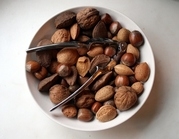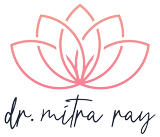
One comment that I’ve heard over and over since I began promoting a whole-foods, plant-based diet is the following: “I tried being a vegetarian but I got sick and I felt tired all the time. I needed more protein.” Protein is not the problem. For a person who makes the switch from the standard American diet, full of animal products and processed foods, detoxification is the problem.
Food is medicine. Healthful, nutrient rich foods can cure a variety of ills, and unhealthy foods can make you sick. And just like drugs, when you stop eating the “bad” foods, your body goes through withdrawal. But here’s the thing: once the (admittedly bothersome) withdrawal passes, a person following a varied, whole-food, plant-based diet will feel far healthier, and have more energy, than they ever have before.
Bread, flour, most pastas, and white rice are all addictive (being that they’re refined carbohydrates, essentially sugar). When you quit any addictive substance, it’s typical to experience headaches, body aches, fatigue, diarrhea, etc. Sugar lurks, unsuspecting, in almost everything we eat: condiments, crackers, breakfast cereal, canned goods – they’re not only loaded with low-nutrient carbs, they’re often packed with extra sugar or corn syrup. So it’s not just quitting soda pop and candy bars; often, it means quitting the very foods that made up the bulk of your diet. And it’s the absence of these foods that contribute to the sugar withdrawal.
Perhaps one of the worst foods in terms of addiction and withdrawal is dairy. The casein in cheese is an opiate making cheese so addictive that some people find it harder to quit dairy than to quit cigarettes. And “just a little bit of cheese” is sort of like “just a little bit of cigarette.” You can’t really quit if you keep dabbling, and your body’s desire for it can return full-force. So a person who quits dairy cold turkey will often experience symptoms of withdrawal, and they’ll mistakenly assume that they’re sick because of their newly vegetarian diet, believing that they need more protein.
But adding more animal-protein to your diet is not the way to give yourself more stamina and energy, or to get rid of that withdrawal headache. In this culture, we’re obsessed with protein. Dieters embrace high-protein diets because to many people they make sense: our own muscles and organs are largely made up of protein, so we must therefore need large amounts of protein to sustain them, right?
In fact, this is wrong. While we do need protein, we need far less of it than most people think. Even the more “balanced” diets, like the Zone, that propose a 40-30-30 caloric breakdown (40% of your calories from protein, 30% from carbohydrates, and 30% from fat) are way off. We actually need less than 10% of our calories from protein, and the vast majority (greater than 80%) of our calories should come from nutrient dense, complex-carbohydrate sources, i.e. vegetables, fruits, whole grains, beans and legumes.
The high-protein diets do get one thing right: refined carbohydrates are not good for you. But this means white flour, sugar, and anything processed. Forget what you think you know about the Glycemic index: potatoes, sweet potatoes, and bananas are some of the best foods that you can eat. And you know what? They all have protein in them.
In fact, all vegetables, grains, beans, seeds, and legumes contain protein. If you follow a whole-food, plant-based diet, and you eat a wide variety of foods, you’ll get more than enough protein. Children who primarily eat fruit, vegetables, and grains do not suffer from protein deficiency either. In fact, you’ve likely never met an American who suffers from too-little protein. In the third world, there are people who indeed suffer from protein deficiency, but these people are actually starving to death, and are suffering from food deficiency… lentils, rice, and vegetables would provide them with all the protein that they need. One cup of cooked lentils contains a whopping 18 grams of protein. A cup of cooked wild rice provides 7 grams. A medium-sized baked potato with the skin has about 5 grams of protein, as does an ear of corn.
If you worry that following a whole-food, plant-based diet will leave you protein deficient, then make an effort to have legumes or beans at least once a day. This combined with whole grains will take care of your protein needs, especially if you’re also eating a fistful or two or raw, unsalted nuts (try soaking them overnight in a bit of water), and if you’re including seeds like flax and sesame in your diet.
And don’t forget that there’s even protein in your broccoli, cherries, and artichokes.
